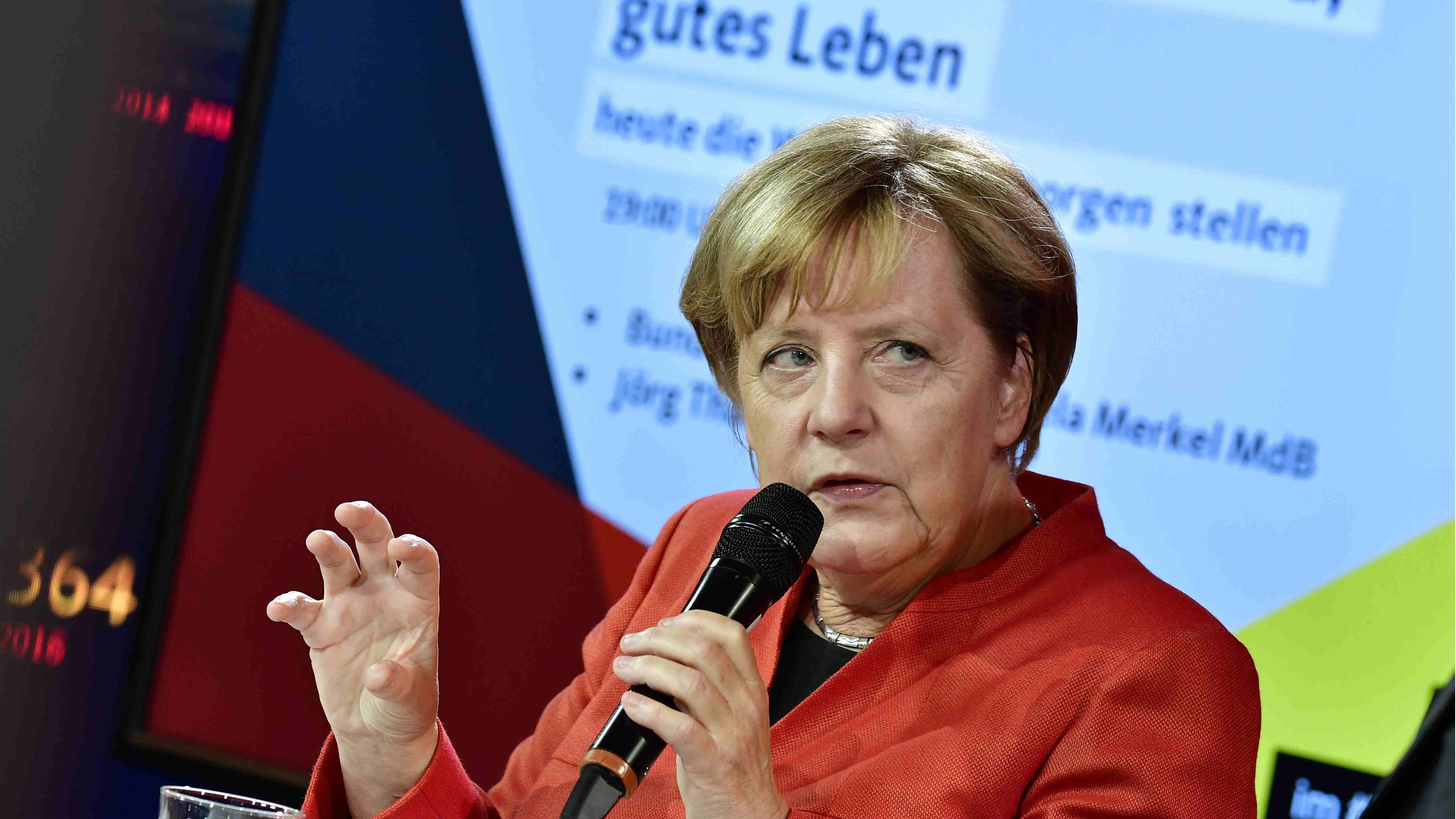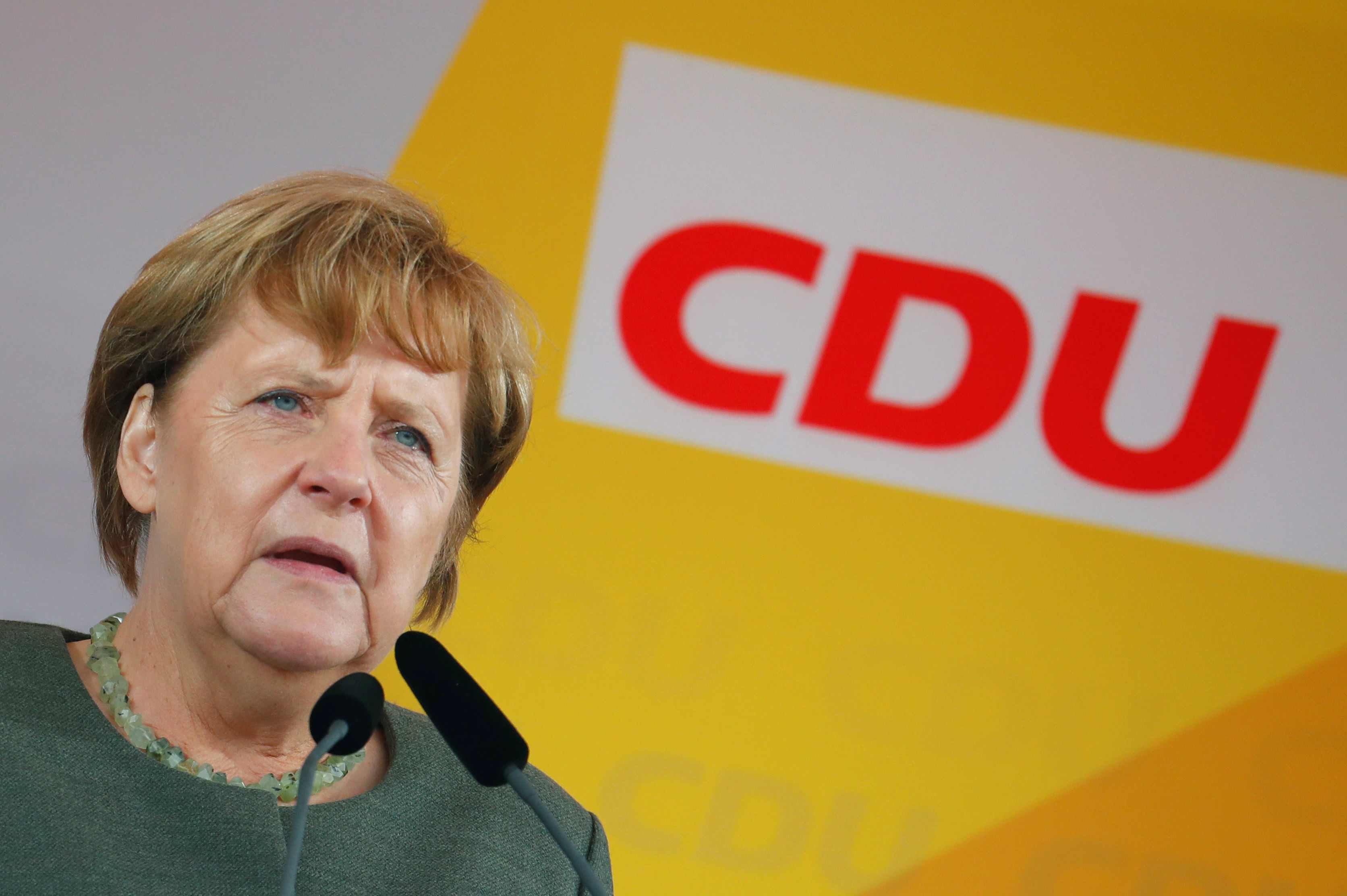
Politics
20:22, 10-Sep-2017
Merkel suggests Iran-style nuclear talks to solve DPRK crisis
CGTN

German Chancellor Angela Merkel said in an interview that she was ready to be asked to join talks to resolve the Democratic People's Republic of Korea (DPRK)’s nuclear issue, adding that negotiations for the Iran nuclear deal would be a possible model for tackling the crisis.
"I could imagine such a format for the settlement of the North Korea conflict. Europe and especially Germany ought to be ready to make a very active contribution," Merkel told weekly newspaper Frankfurter Allgemeine Sonntagszeitung.
Iran and six world powers, namely Britain, China, France, Germany, Russia and the United States, reached an agreement on the Iranian nuclear issue in July 2015, which put Tehran on the path of sanctions relief but with more strict limits on its nuclear program.
Chinese President Xi Jinping discussed the situation on the Korean Peninsula on a call with Merkel on Thursday. Xi emphasized the need to settle the nuclear issue through peaceful means, while Merkel supported resolving it through political means and vowed to strengthen communication with China over the issue.

German Chancellor Angela Merkel, the top candidate of the Christian Democratic
Union Party (CDU) for the upcoming general elections, during a speech in her election campaign in Barth, Germany, September 8, 2017. /Reuters Photo
German Chancellor Angela Merkel, the top candidate of the Christian Democratic Union Party (CDU) for the upcoming general elections, during a speech in her election campaign in Barth, Germany, September 8, 2017. /Reuters Photo
Merkel also held phone talks with leaders of France, the US, the ROK and Japan about the DPRK crisis over the past week, and is expected to speak with Russian President Vladimir Putin on Monday.
She also warned during the interview that the divided asylum scheme among EU countries would be “bitter for European cohesion,” saying that "If there is no solidarity on migration, neither will there be in other areas.”
Earlier this week, the EU’s top court rejected Hungary and Slovakia’s challenge to the EU’s mandatory refugee quota scheme, insisting that EU national governments need to take in their fair share of asylum seekers.
The compulsory quota scheme was approved in September 2015 by the majority of EU members, in order to assign some 120,000 people throughout the EU out of the 1.6 million who have landed on Greek and Italian shores since 2014.
Under the policy, Hungary is required to take in 1,294 refugees and Slovakia 902.

SITEMAP
Copyright © 2018 CGTN. Beijing ICP prepared NO.16065310-3
Copyright © 2018 CGTN. Beijing ICP prepared NO.16065310-3